|
Voiced by Amazon Polly |
Introduction
Building and deploying serverless applications on cloud platforms like AWS Lambda, Amazon DynamoDB, or Amazon S3 has become the backbone of modern, scalable architectures. However, one of the biggest challenges developers face is local testing. Running and debugging serverless applications directly in the cloud introduces latency, costs, and dependency on network availability.
In this blog, we will dive into the architecture, features, and use cases of LocalStack integration with VS Code, followed by step-by-step implementation guidance.
Pioneers in Cloud Consulting & Migration Services
- Reduced infrastructural costs
- Accelerated application deployment
WorkFlow Diagram
Below is a simplified architecture diagram showing how LocalStack integrates into the development workflow inside the VS Code IDE:

This workflow allows developers to code, test, and debug locally in VS Code using LocalStack before pushing changes to the AWS environment.
Key Features of LocalStack + VS Code Integration
- Local AWS Cloud Simulation
- Run AWS services such as AWS Lambda, Amazon DynamoDB, Amazon S3, Amazon API Gateway, and more without a cloud account.
- Seamless IDE Integration
- Extensions and plugins for VS Code allow LocalStack to be run directly from the IDE.
- Cost Reduction
- Eliminate unnecessary AWS charges for development/testing.
- Offline Development
- No internet dependency, developers can test features locally even when offline.
- Rapid Feedback Loop
- Faster build-test-debug cycle compared to pushing every change to AWS.
- Support for CI/CD
- Easily integrates with automated pipelines for local-first testing.
- Consistent Environment
- The same configuration can be shared across teams, ensuring consistency.
Use Cases
- Serverless Application Development
- Test AWS Lambda functions locally without deploying to AWS.
- Developers can quickly iterate, set breakpoints in VS Code, and validate logic before pushing code to real AWS environments.
- API Development with Amazon API Gateway
- Mock APIs and test endpoints locally.
- Useful for validating routes, request/response mappings, and integration with AWS Lambda before exposing them to end users.
- Data Pipelines
- Simulate Amazon S3 file uploads and Amazon DynamoDB transactions for ETL processes.
- Helps test event-driven workflows (e.g., file drop → AWS Lambda trigger → Amazon DynamoDB write) in a cost-free local environment.
- CI/CD Testing
- Integrate LocalStack into CI pipelines for reliable, cost-free testing.
- Ensures pull requests and new builds can run integration tests against AWS-like services without spinning up cloud resources.
- Prototyping and Experimentation
- Quickly test AWS features without affecting production environments.
- Ideal for experimenting with new architectures or service combinations, such as testing Amazon SQS vs. Amazon Kinesis for event handling.
Steps to Implement LocalStack Integration in VS Code
Step 1: Install Prerequisites
- Docker Desktop: LocalStack runs in a Docker container.
- Python & pip: Required for LocalStack CLI.
- VS Code IDE with AWS Toolkit Extension.
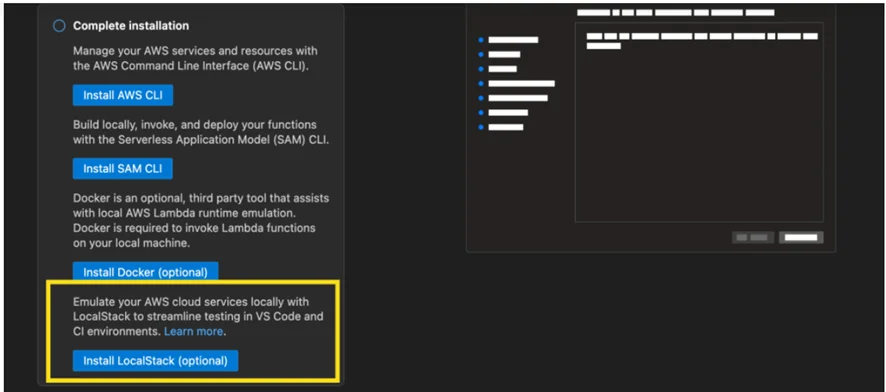
Step 2: Install LocalStack
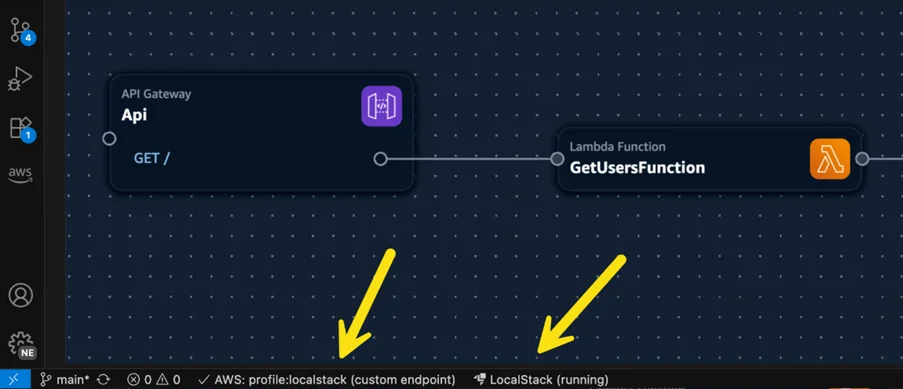
Step 3: Configure AWS CLI to Point to LocalStack – Update your AWS CLI config
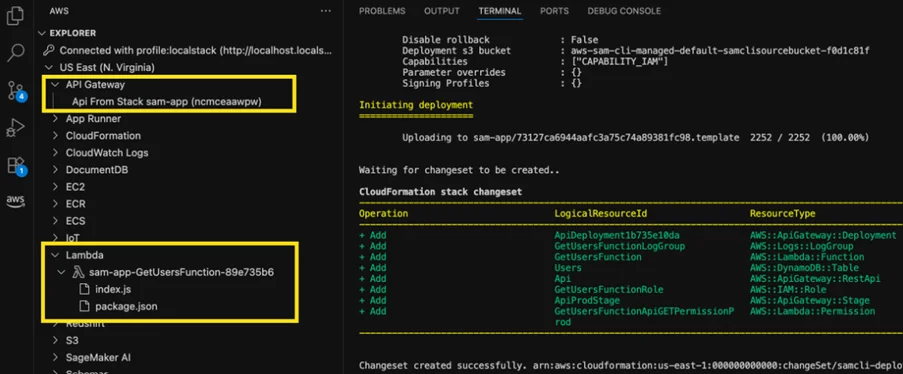
Step 4: Install LocalStack VS Code Extension
- Open VS Code → Extensions Marketplace.
- Search for LocalStack and install.
- Configure the extension to connect to LocalStack.
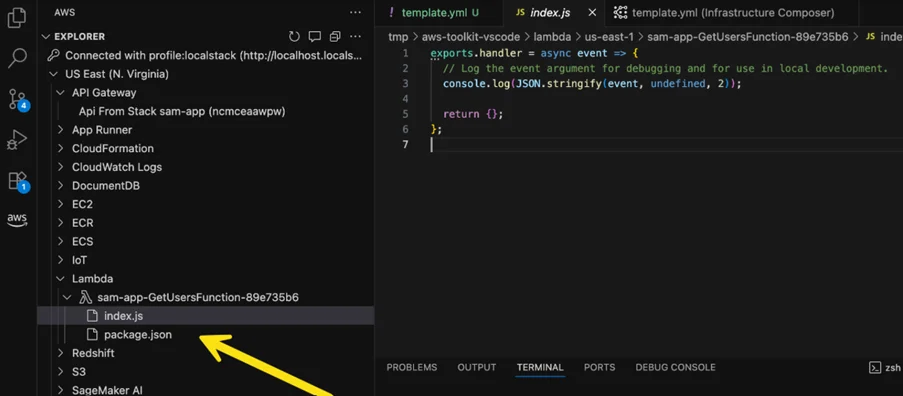
Step 5: Create a Serverless Project
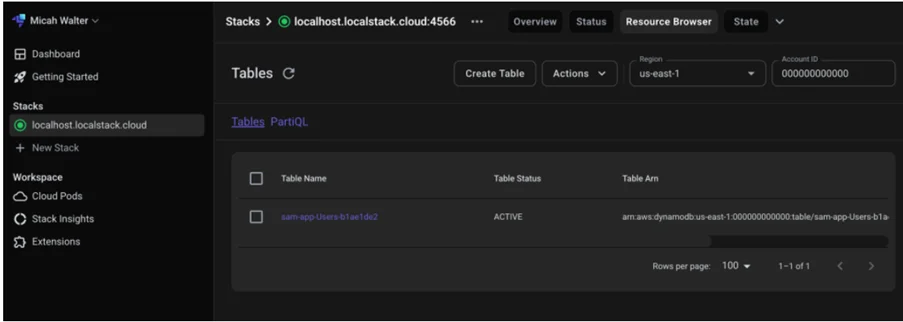
Step 6: Deploy to LocalStack – deploys your AWS Lambda, Amazon API Gateway, and Amazon DynamoDB to the LocalStack environment.
Step 7: Test from VS Code
- Use AWS Toolkit in VS Code to invoke AWS Lambdas.
- Send API requests.
- Verify Amazon DynamoDB or Amazon S3 actions via the LocalStack console.
Step 8: Debugging
- Set breakpoints in your code.
- Attach the debugger in VS Code.
- Step through AWS Lambda executions locally.
Step 9: Transition to Cloud
Once validated, deploy the same configuration to AWS: serverless deploy –stage prod
Conclusion
Integrating LocalStack with VS Code IDE streamlines serverless development by bringing the power of AWS services to your local environment. Developers can test, debug, and validate applications without incurring costs or relying on cloud connectivity. With LocalStack, you achieve:
- Faster feedback loops
- Lower costs
- Improved developer productivity
- Reduced risk in production deployments
By making LocalStack a part of your development workflow, you can confidently build scalable, cloud-ready serverless applications.
Drop a query if you have any questions regarding LocalStack and we will get back to you quickly.
Empowering organizations to become ‘data driven’ enterprises with our Cloud experts.
- Reduced infrastructure costs
- Timely data-driven decisions
About CloudThat
CloudThat is an award-winning company and the first in India to offer cloud training and consulting services worldwide. As a Microsoft Solutions Partner, AWS Advanced Tier Training Partner, and Google Cloud Platform Partner, CloudThat has empowered over 850,000 professionals through 600+ cloud certifications winning global recognition for its training excellence including 20 MCT Trainers in Microsoft’s Global Top 100 and an impressive 12 awards in the last 8 years. CloudThat specializes in Cloud Migration, Data Platforms, DevOps, IoT, and cutting-edge technologies like Gen AI & AI/ML. It has delivered over 500 consulting projects for 250+ organizations in 30+ countries as it continues to empower professionals and enterprises to thrive in the digital-first world.
FAQs
1. What is LocalStack?
ANS: – LocalStack is a local cloud stack that emulates AWS services on your machine for development and testing.
2. Do I still need an AWS account if I use LocalStack?
ANS: – For local testing, no. But for production deployments, you will need a real AWS account.
3. Which AWS services are supported by LocalStack?
ANS: – Popular ones include AWS Lambda, Amazon S3, Amazon DynamoDB, Amazon API Gateway, Amazon SNS, Amazon SQS, Amazon Kinesis, and more.

WRITTEN BY Neetika Gupta
Neetika Gupta works as a Subject Matter Expert at CloudThat with experience deploying multiple data science projects across various cloud platforms. She has successfully delivered end-to-end AI applications tailored to business requirements on cloud frameworks such as AWS, Azure, and GCP. Neetika also specializes in deploying scalable applications using CI/CD pipelines.


 Login
Login
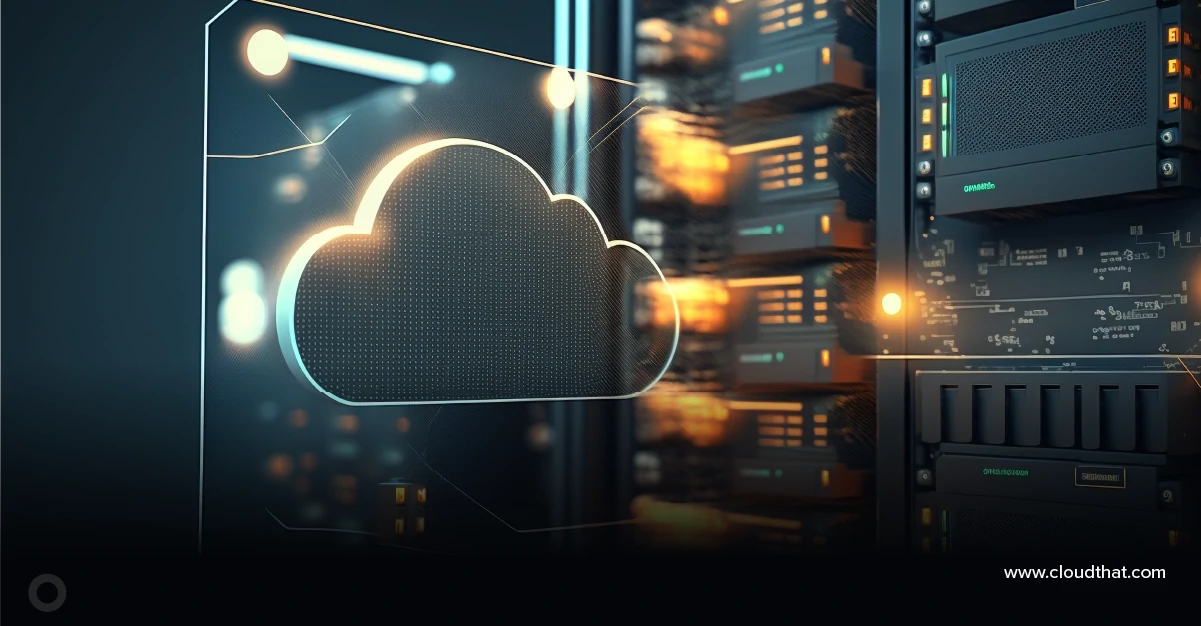

 September 23, 2025
September 23, 2025 PREV
PREV



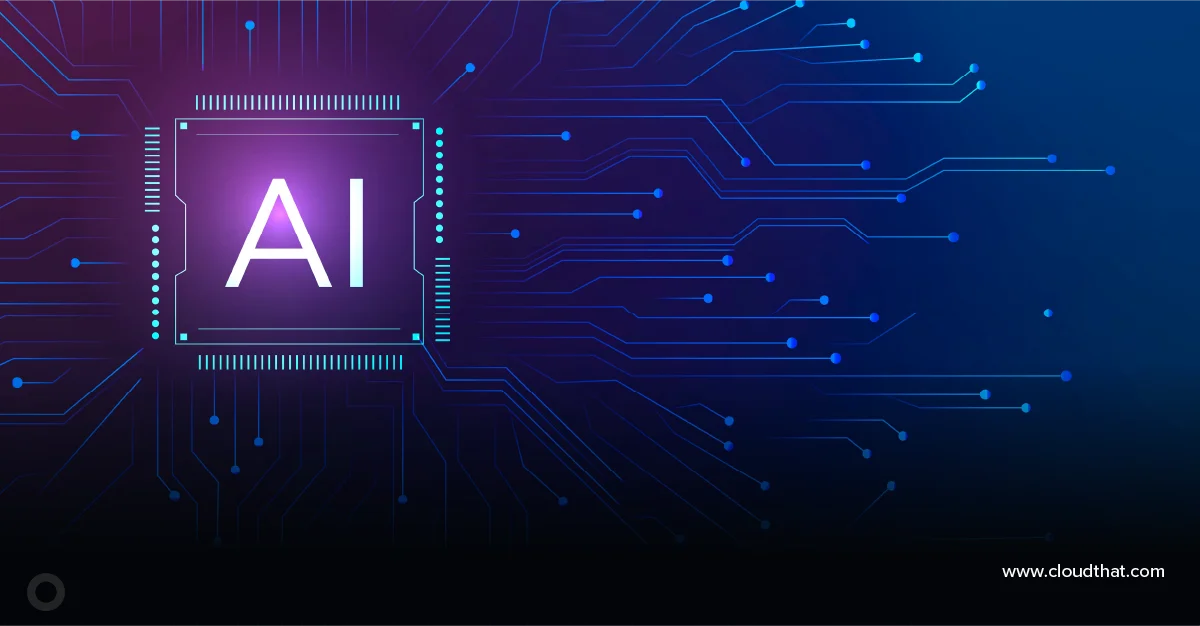


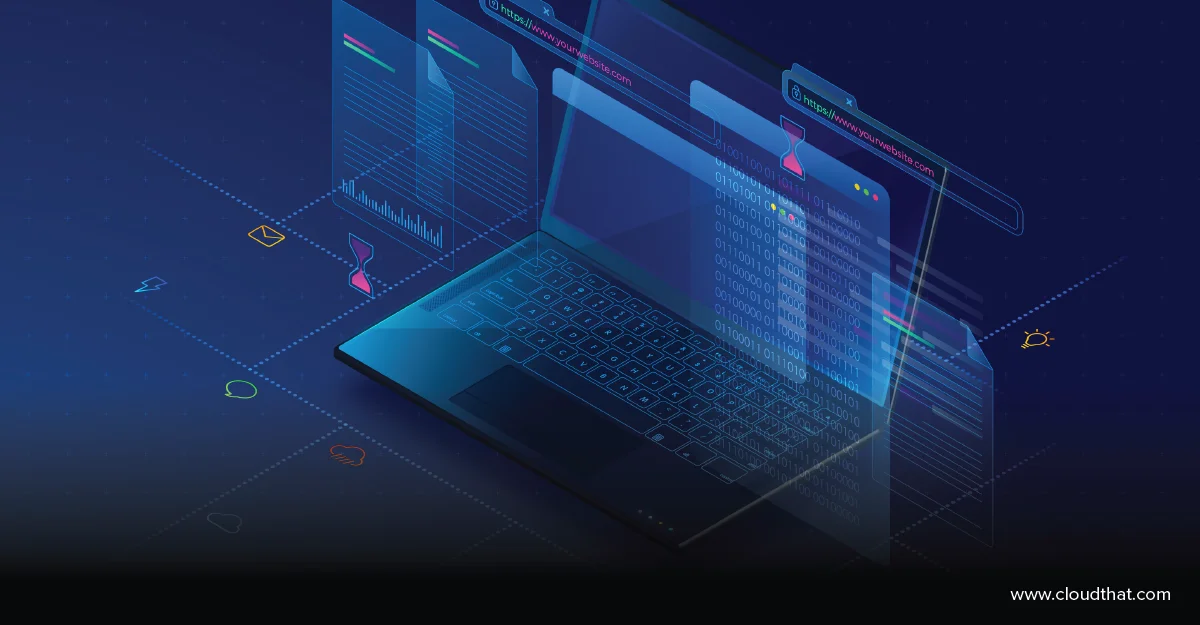




Comments